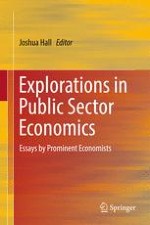2017 | OriginalPaper | Buchkapitel
2. Public Choice Issues in International Collective Action: Global Warming Regulation
verfasst von : Daniel Houser, Gary D. Libecap
Erschienen in: Explorations in Public Sector Economics
Aktivieren Sie unsere intelligente Suche, um passende Fachinhalte oder Patente zu finden.
Wählen Sie Textabschnitte aus um mit Künstlicher Intelligenz passenden Patente zu finden. powered by
Markieren Sie Textabschnitte, um KI-gestützt weitere passende Inhalte zu finden. powered by
